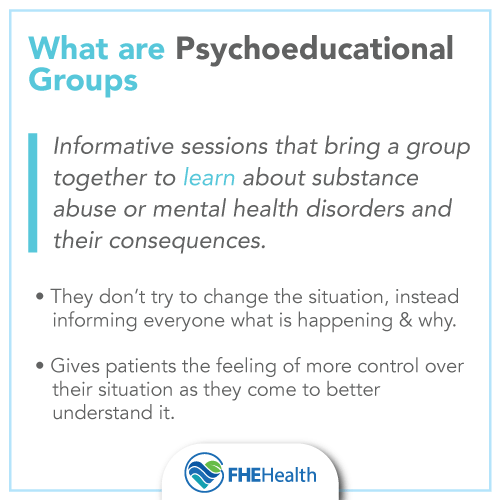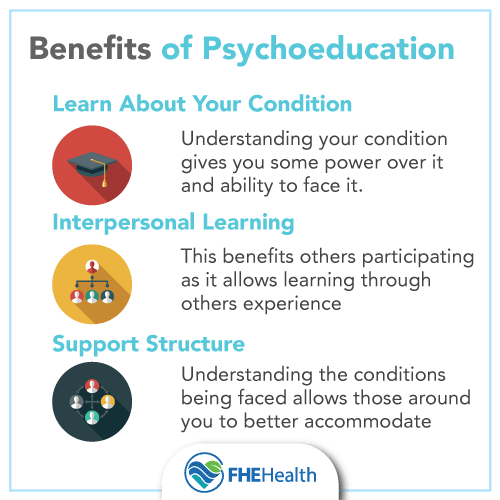
|
|
Psychoeducation is a type of group therapy for those seeking help for mental health disorders or addiction. Psychoeducation isn’t always well understood by the public or by those who seek out psychoeducational group therapy. Yet, its premise is very simple and very valuable.
Psychoeducational groups work to educate those who are seeking mental illness or addiction treatment on how to live with these conditions. It’s not a new concept, having been in use for over 100 years, but it hasn’t always been accepted as a viable option. It’s also changed significantly over the years. During the mid-1980s, it was designed to bring families together in a type of intervention-style meeting.
Patients and their family members were given information on the illness and instructed to develop a deep understanding of that illness and the therapies used to treat it. The goal was to create a long-term commitment from everyone involved in the treatment of the condition.
Today, it’s evolved into an independent therapeutic program where the focus is on communication improvement between the patient and the family. Now, the goal is to help the family understand and accept the illness and, in doing so, offer a supportive network to the individual.
 Psychoeducational groups are informative sessions that bring family and patient together to learn about substance abuse or
Psychoeducational groups are informative sessions that bring family and patient together to learn about substance abuse or  A variety of formats may occur. Most of the time, this type of educational model facilitates a group of people coming together to learn. The number of group members participating can vary from one-on-one to very large.
A variety of formats may occur. Most of the time, this type of educational model facilitates a group of people coming together to learn. The number of group members participating can vary from one-on-one to very large.





